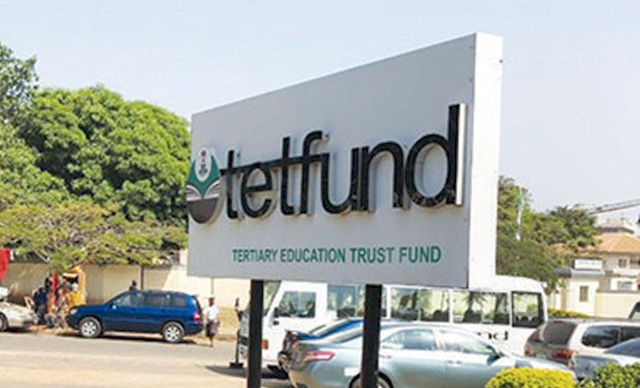TETFund urges Nigerian Tertiary Institutions to Embrace Digital Learning for Improved Access and Quality Education

TETFund urges Nigerian Tertiary Institutions to Embrace Digital Learning for Improved Access and Quality Education
The Tertiary Education Trust Fund (TETFund) has renewed its call on Nigerian higher institutions to fully embrace technology in teaching, research, and administration, warning that billions of naira already invested in digital infrastructure could be wasted if left underutilised.
Executive Secretary of TETFund, Sonny Echono, made the appeal in Abuja during a two-day workshop on the adoption of Blackboard and the Tertiary Education, Research, Applications, and Services (TERAS) platform for beneficiary institutions. The event brought together registrars, bursars, ICT directors, academic planners, and thesis repository managers from universities, polytechnics, and colleges of education.
Echono, who lamented the slow pace of ICT adoption, reminded participants that technology offers the only realistic solution to Nigeria’s education challenges. He explained that the country’s fast-growing population and limited classrooms demand innovative approaches to expand access.
“We are no longer confined to the four walls of classrooms. With just an Android phone or a device, students should be able to access content, participate in learning, and acquire skills. There is no alternative to technology if we must prepare our youths for the opportunities ahead,” he said.
Despite early investments in platforms such as TERAS, Echono noted that many institutions still lag behind in digital transformation, with some continuing to send hardcopy requests to TETFund despite directives for e-submissions. He described many schools’ online presence as inadequate. “A robust and regularly updated institutional website should be a minimum requirement in this digital age. Sadly, many of our schools’ websites are embarrassingly outdated,” he observed.
He recalled the successes recorded during the COVID-19 lockdown when TETFund collaborated with state governments and broadcasters to deliver syllabus-based lessons. According to him, that intervention contributed to one of Nigeria’s best West African Senior School Certificate Examination (WASSCE) results, proving the potential of technology to transform learning.
Echono, however, expressed concern about Nigeria’s poor global ranking in education competitiveness. “Nigeria now ranks 189th globally, and 25th in Africa—behind smaller countries like Rwanda and Mauritius that have leveraged ICT to transform their systems,” he said. “Government has done its part by providing the infrastructure, but when equipment is procured and platforms created and they are not being used, that is the very definition of waste.”
The TETFund boss urged heads of institutions to lead by example by ensuring lecturers and students are fully onboarded onto TERAS and other platforms. He stressed that going forward, more than half of the agency’s investments would have to shift from physical infrastructure to digital technologies.
Drawing a comparison with global trends, Echono linked Nigeria’s underdevelopment to its failure to harness technology across sectors. “We can do the same if we decide to do the right thing. The right thing starts with our education system. The building block of every nation is knowledge,” he said.
He appealed to tertiary institutions to seize the opportunity, populate their websites with relevant data, and take advantage of the platforms already provided.
Earlier, TETFund’s Director of ICT, Joseph Odo, explained that the workshop was designed to strengthen understanding of the agency’s digital platforms and foster collaboration among institutions. “This is part of our engagements with key stakeholders—registrars, librarians, ICT directors, repository managers, and academic planners—to ensure that everyone understands the interventions we are providing. The world is moving fast technology-wise, and we cannot afford to be left behind,” Odo said.
According to him, similar workshops will be held across all six geopolitical zones to deepen the use of TETFund-funded learning platforms, which aggregate institutional data, enhance planning, and improve teaching, research, and learning outcomes






